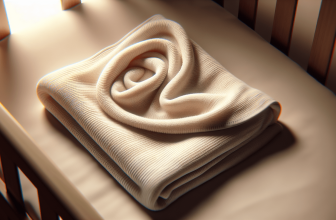Are you worried about how to keep your baby’s delicate skin healthy and nourished during the winter months? Don’t fret! We have got you covered with some valuable tips on managing your baby’s skin care during the colder season. From choosing the right moisturizer to combating dryness and irritation, this article will provide you with all the essential information you need to ensure your little one’s skin stays soft and supple throughout winter. Read on to learn how you can protect your baby’s skin from the harsh elements and keep them comfortable and happy all season long.

Choosing the Right Products
Taking care of your baby’s skin during the winter requires special attention and choosing the right products is crucial. Start by using gentle and hydrating cleansers that won’t strip away the natural moisture from your baby’s skin. Look for products specifically formulated for babies, as they are often mild and less likely to cause irritation. These cleansers will help keep your baby’s skin clean and nourished without drying it out.
When it comes to choosing products for your baby’s skin, opt for fragrance-free and hypoallergenic options. Fragrances can often contain harsh chemicals that can irritate your baby’s delicate skin. Hypoallergenic products, on the other hand, are specially formulated to minimize the risk of allergic reactions. By choosing fragrance-free and hypoallergenic products, you can reduce the chances of any adverse reactions and keep your baby’s skin healthy and happy.
In addition to avoiding fragrances, it’s also important to check for ingredients that lock in moisture. Look for products containing ingredients like shea butter, coconut oil, or hyaluronic acid. These ingredients help create a protective barrier on your baby’s skin, preventing moisture loss and keeping it hydrated for longer. With the right moisturizing ingredients, you can ensure that your baby’s skin stays soft and supple even in the driest winter months.
Bathing Techniques
Bathing is an essential part of your baby’s skincare routine, but during the winter, it’s important to adjust your bathing techniques to protect their skin from drying out. Limit bath time to around 10 minutes and use lukewarm water instead of hot water. Hot water can strip away the natural oils from your baby’s skin, leaving it dry and prone to irritation. Lukewarm water, on the other hand, is gentle on their skin and helps retain moisture.
When it comes to choosing soaps and bath products, avoid harsh soaps and bubble baths. Harsh soaps can be drying and irritating to your baby’s skin, so opt for mild and gentle cleansers instead. Bubble baths may be fun, but the chemicals in the bubbles can also dry out their skin. Stick to plain water or use a gentle cleanser without any added fragrances or irritants.
After bathing, remember to pat your baby dry instead of rubbing their skin with a towel. Rubbing can cause friction and further irritate their delicate skin. By gently patting their skin, you can minimize the risk of irritation and help retain moisture on their skin’s surface.
Moisturizing Routine
Moisturizing is key to keeping your baby’s skin hydrated during the winter months. After bathing, apply a moisturizer immediately to lock in the moisture from the water. Look for thick creams or ointments that are specially formulated for babies. These products are often richer in texture and provide a longer-lasting barrier on their skin, preventing moisture loss.
When applying moisturizer, pay extra attention to dry areas like their hands and cheeks. These areas are more prone to dryness and may require a little extra TLC. Gently massage the moisturizer into their skin using circular motions until it’s fully absorbed. Regular moisturizing can help soothe dry and itchy skin, leaving it soft and smooth.
Protective Clothing
Protecting your baby’s skin from the harsh winter weather starts with choosing the right clothing. Dress your baby in multiple layers to ensure they stay warm and comfortable. Layering allows you to adjust their clothing according to the temperature and helps trap heat, keeping them cozy. Opt for breathable fabrics like cotton, as synthetic materials can cause sweating and further irritate their skin.
Don’t forget to cover their extremities with mittens, socks, and hats. These areas are more susceptible to dryness and can easily become chapped. Mittens and socks help prevent their delicate skin from being exposed to cold air and wind, while hats provide warmth and protect their scalp and ears. By dressing your baby in protective clothing, you can shield their skin from the elements and keep it moisturized.

Humidifier Usage
During the winter months, the air indoors can become dry, which can affect your baby’s skin. Using a humidifier can help combat this dryness by adding moisture back into the air. Place the humidifier in your baby’s sleeping area to ensure they benefit from the extra moisture while they sleep. Keeping the indoor air moist can prevent their skin from drying out and minimize the chances of irritation.
Remember to clean and maintain the humidifier regularly to prevent the growth of mold and bacteria. Follow the manufacturer’s instructions for cleaning and replacing filters to ensure the humidifier functions effectively. By maintaining a proper humidity level in your baby’s environment, you can help keep their skin hydrated and healthy.
Avoiding Overheating
While it’s important to keep your baby warm during the winter, it’s equally important to avoid overheating. Overdressing your baby can lead to sweating, which can further irritate their skin. Dress them in comfortable layers and keep an eye on their body temperature. Maintain a comfortable room temperature, around 68-72°F (20-22°C), to ensure they don’t become too hot or too cold.
Be mindful of excessive indoor heating as well. Central heating systems can dry out the air, which can dehydrate your baby’s skin. Consider using a humidifier in conjunction with the heating system to maintain a balance of moisture in the air. By keeping your baby at a comfortable temperature and avoiding overheating, you can help prevent skin dryness and discomfort.

Protecting from Sun Damage
Although winter may seem like a season with less sun exposure, it’s still important to protect your baby’s skin from harmful UV rays. Apply a safe and gentle sunscreen with a high SPF to any exposed areas of skin. Look for a sunscreen specifically formulated for babies, as they are less likely to contain harsh chemicals that can irritate their skin. Apply the sunscreen generously and reapply as directed throughout the day.
Seeking shade and limiting sun exposure is also crucial. Avoid direct sunlight during peak hours, usually between 10 am and 4 pm when the sun’s rays are strongest. If you do need to be outside, use protective clothing like long-sleeved shirts, pants, and hats to cover their skin. Sunglasses can also help protect their eyes from the sun’s glare. By taking these measures, you can help keep your baby’s skin safe from sun damage even during the winter.
Preventing Chapped Lips
Chapped lips can be uncomfortable for anyone, including your baby. To prevent chapped lips, apply a baby-friendly lip balm regularly. Look for lip balms specifically designed for babies, as they are gentle and safe for their delicate skin. Avoid using adult lip balms, as they may contain ingredients that can irritate their lips.
Encourage your baby to avoid excessive lip licking, as this can further dry out their lips. Keep them hydrated by offering them water frequently, especially if they are in a dry environment. By regularly moisturizing their lips and keeping them hydrated, you can prevent chapped lips and keep their smiles soft and supple.
Taking Care of Dry Scalp
A dry scalp can be a common issue for babies during the winter months. To take care of a dry scalp, gently massage baby oil onto their scalp. The oil can help moisturize their skin and loosen any dry or flaky patches. Leave the oil on for a few minutes to allow it to penetrate the skin, then use a soft brush to gently remove any flaky skin.
Avoid scratching or picking at the scalp, as this can further irritate the skin and cause discomfort for your baby. Instead, use the soft brush to gently exfoliate and remove any flakes. Be gentle and take your time to avoid causing any pain or discomfort. By taking these steps, you can help alleviate dryness and keep your baby’s scalp healthy.
Consulting a Pediatrician
If you have any severe concerns about your baby’s skin during the winter, it’s important to seek professional advice from a pediatrician. They can assess your baby’s skin condition and provide personalized recommendations based on their specific needs. If your baby has persistent skin issues or allergies, discussing them with a pediatrician is essential to ensure proper care and treatment.
A pediatrician can guide you on the best skincare practices for your baby and recommend specific products that are safe and effective. They can also help identify any underlying causes or triggers for skin problems and provide appropriate solutions. Following the recommendations of a pediatrician will give you peace of mind and help ensure that your baby’s skin is well taken care of during the winter months.
Managing your baby’s skin care during winter may require some extra attention, but with the right techniques and products, you can keep their delicate skin healthy and comfortable. By choosing gentle and hydrating cleansers, using moisturizers, dressing them in protective clothing, and implementing other skincare practices, you can protect their skin from dryness and irritation. Remember to consult a pediatrician for any concerns or persistent skin issues to ensure the best care for your baby.








